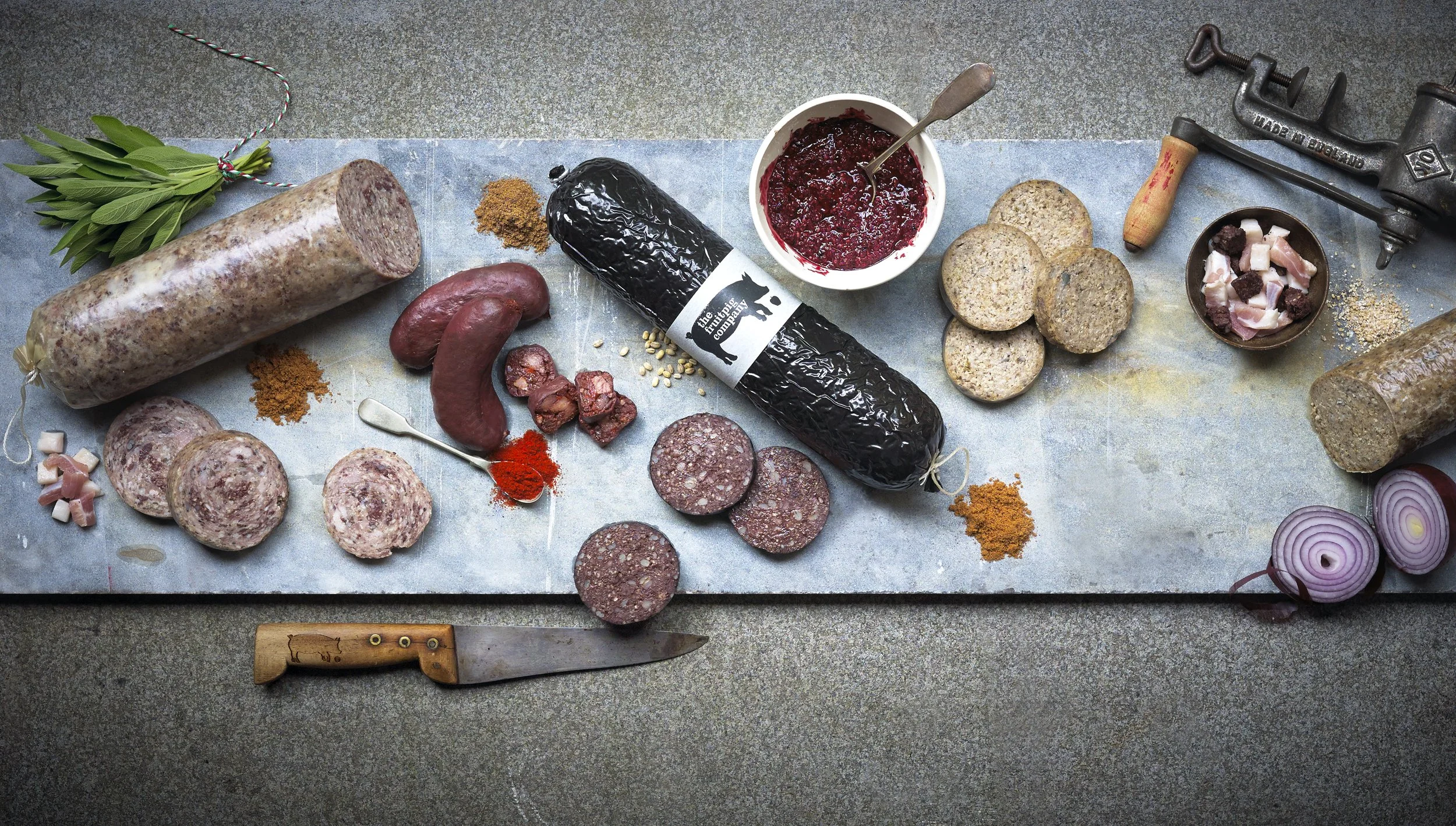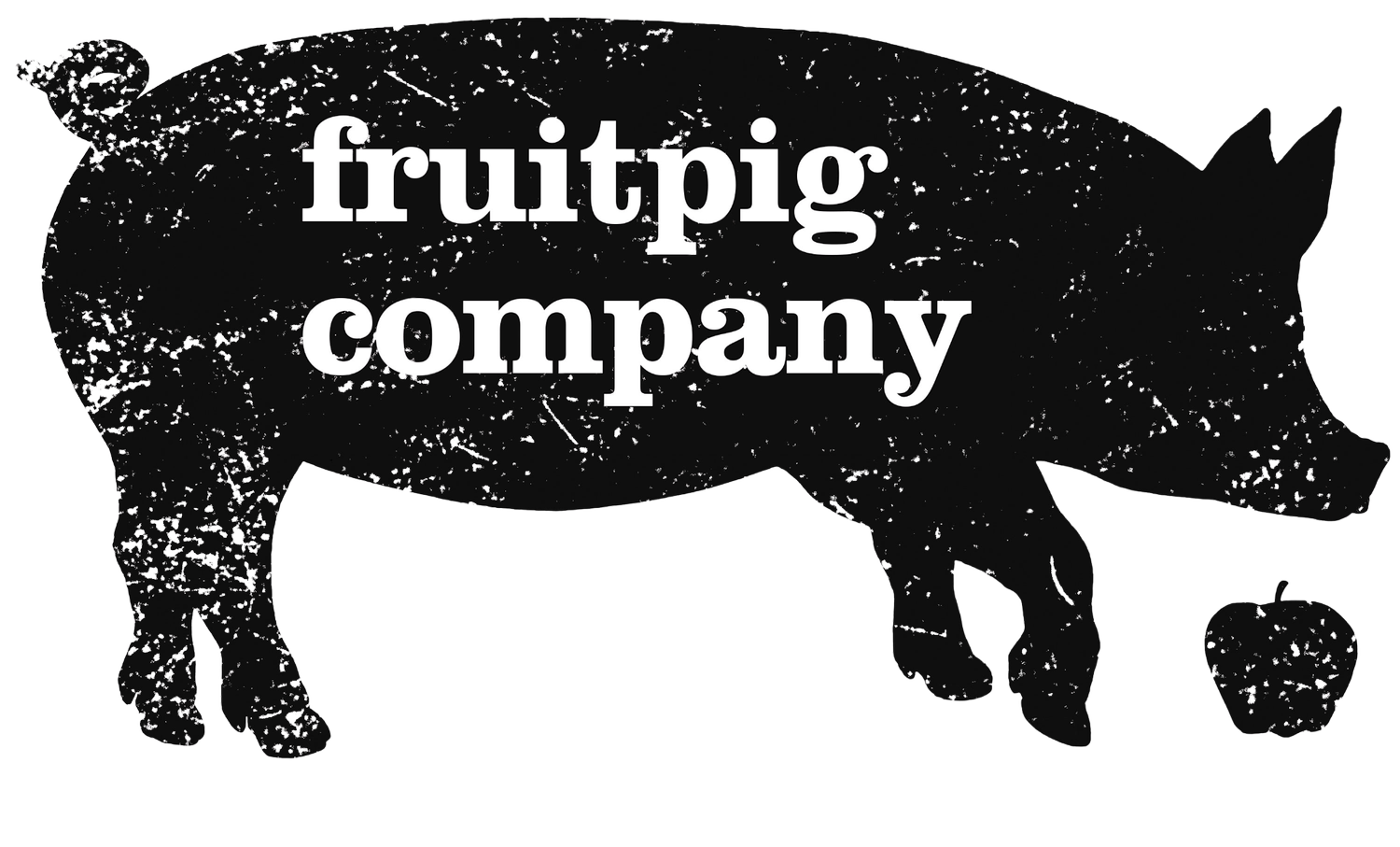
Frequently asked questions.
Have a question? New customers often have a question about our fresh blood black puddings or free-from products. To assist, we've answered the most commonly asked questions below.
-
We may do, we have more than 250 retailers nationally. Just go to our interactive map or just type in your postcode.
-
Description text goes hereYes, we are wholesale producers. We sell direct to restaurants, cafes, butchers, delis and farmshops. Just get in touch stating your business name, where you are and supply a phone number. We'll send you our wholesale brochure detailing: ordering, prices, minimum amounts, shelflife, allergens etc....it's that easy.
-
No, we are almost alone in making a black pudding with fresh blood. All the nationally-recognised producers we know of use imported dried blood powder harvested from large factory units. To be fair, these larger producers are producing 10s of tonnes of black pudding each week so there's probably not enough correctly harvested fresh pig's blood available. As slaughtermen, as well as butchers, we have access to fresh blood. We've also developed procedures and equipment with which to harvest it legally or 'fit for human consumption' as we say in the trade. It's not easy, it is a very messy and dangerous environment. We know of no-one who sets out in life to become a slaughterman!
No matter what some say, it is NOT illegal to collect animal blood for black pudding if the blood is passed 'fit for human consumption' by the Meat Inspector in the abattoir.
Is there a difference between the two styles of black puddings? In our taste tests, dried blood black puddings can't hold a candle to the richness and texture of a fresh blood black pudding. If you doubt us, simply put ours to the test. That said, there are a few delicious dried blood varieties out there....but only a few!
What are we claiming/saying?
Compared to dried blood versions, ours is more authentic, we use fresh blood. An omlette made with powdered egg is less authentic than an omlette made with fresh eggs...isn't it?
Fresh blood collected 10-50 miles away is so different to the mass collection, dehaydration, packaging and sending out palletted bagged blood powder from a factory 1500+ miles miles away. So ours is more sustainable, true farm-to-fork, the most food-mile-friendly black pudding you can buy on the internet. As an aside, 98% of the ingredients are british. Only the spices come from off-shore.
Regional allegiances aside, if you've tried ours and you still prefer your local blend, brilliant. Black pudding is the new black.....it's all good.
Listen to BBC Radio 4, The Food Programme. Tim Hayward comes to visit Fruit Pig and talks about the use of blood in food.
-
-
No. We only have permission to collect and use the fresh blood ourselves. We cannot gift or sell fresh blood.
-
When we first started out, our pigs were fed loads of local fresh fruit and veg, including windfall apples and pears, and the company name came from there.
-
Short answer is sometimes but read on if you really want to know facts. Did you know there is no legal definition for free range pork? It is generally accepted by the farming and food industry that free range for pigs means pigs spending their entire lives outdoors, with free access, at least to straw-filled arcs and outside fields. Our main product, fresh blood black pudding, is made from british pork fat and fresh local blood collected by us in our local abattoir; we're qualified slaughter men. We are the ONLY company in the UK who collect fresh blood for black pudding production. Some of the animals we collect from are free range, some are organic, some are out door stall and some are high welfare in door pigs. We make 100s of kg of black pudding a week. Fruit Pig would not be viable if we only collected from free-range/organic pigs. The local, commercial farm used in our video is high welfare and RSPCA authorised. The pigs are bred and grown in such a professional manner, the farm is antibiotic-free.
ALL the famous, national black pudding producers make their black pudding from imported dried blood powder which is harvested in huge, indoor pork factory units in Spain, The Netherlands and Denmark. Non of them can be called free-range because of this.
We like to think we play with a very straight bat. Free-range is not a simple yes/no, if you think it is, you do not know farming. In our time, we have visited so-called free-range producers and have had to walk away as their ethics and standards were so poor. Conversely, there are many commercial outdoor stall and indoor breeders with the great ethics and standards.
Many are confused about food labelling definitions: out-door reared, free-range, out-door sired etc. We think Compassion in World Farming have the best guide to this definition minefield. Their food guide is an excellent place to start to unravel.
-
It's all a matter of personal choice. Rare breeds were not rare years ago. As demand for meat increased after the Second World War, the faster growing, easier processing strains of animals became popular for farmers catering for the baby boomer generation. Most modern commercial breeds tend to put on less fat and grow to cull weight faster than what are now their rare breed counterpart cousins.
-
Yes you can. We don't have a shop, but if pre-arranged, we can accept visits for picking up Monday to Friday. All we ask is for you to email your order a good few days in advance and we'll sort out a pick-up plan. We're at 6 Anglia Way, Wisbech. PE13 2TY, next door to Laker's Gym. What3Words: nuzzling.caps.taps. We can accept cash on pick up (exact money please) but prefer to email you before pickup and ask you bank transfer.
-
Short answer no. Sadly, sending to the EU post Brexit is an utter admin nightmare (and costly) so we've given up.
-
Firstly, we make a fresh blood black pudding which uses what most abattoirs have as waste, their pig's blood. All other national producers use imported dried powdered blood. Our onions are fresh (rare again) and come from a factory we can hit with a 6 iron! Our barley, oats and fat are all UK too. That probably puts us at the top of the black pudding chart.
We have a contract with a local biotech company. Our waste food production is sent to their anaerobic digestion plant some 9 miles away. Here, it is processed into a liquid porridge, and then pumped into the anaerobic digestion plant itself. Bacteria feed on the food waste and produce biogas. The biogas is captured and used as a fuel in CHP engines or sent directly to the gas grid.
We have 120 x 430w solar panels on our roof which helpes reduce our external energy needs. These panels save 8000-9000kg of CO2 a year. Our current grid energy supplier is Total Engeries. Their energy source mix (21/22) is 50% renewable. All of our factory lighting (bar a single external night sodium) is LED.
My parcel is arriving tomorrow, I need to change some details.
-
Sadly, there is no way to interact, officially, with the delivery driver’s ‘manifest’ once we’ve set up the courier note the day before. If you're wanting the parcel left in a specific place, leave a note on your door for the APC driver. They will try and leave it anyway as this is our default procedure with APC. If you track your parcel, the delivery depot details come up, you could try contacting them direct.
